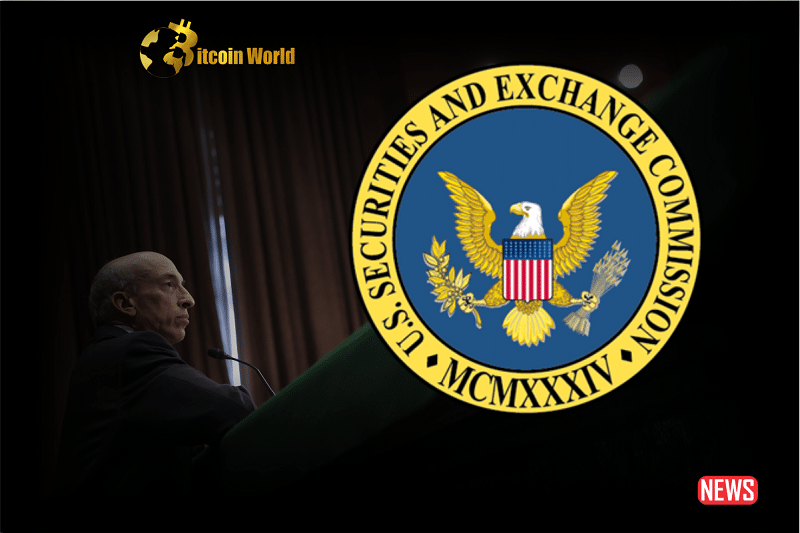June witnessed a seismic shift in the cryptocurrency landscape as giants Coinbase and Binance found themselves in the crosshairs of the Securities and Exchange Commission (SEC). But are these lawsuits a necessary step towards regulation, or an overreach by SEC Chairman Gary Gensler? Let’s dive into the heart of this debate that’s got the crypto world buzzing.
The SEC’s Actions: Protecting Investors or Stifling Innovation?
The SEC’s lawsuits against Coinbase and Binance allege that these exchanges operated as unregistered securities brokers, among other violations. This has reignited the long-standing debate about how cryptocurrencies should be classified and regulated. On one side, the SEC argues they are protecting investors from potential fraud and market manipulation. On the other, many in the crypto industry believe these actions are stifling innovation and hindering the growth of a burgeoning technology.
Former SEC Chair Slams Gensler’s Approach: A Power Grab?
Adding fuel to the fire, former SEC Chairman Jay Clayton has openly criticized Gary Gensler’s aggressive stance. Clayton specifically called out Gensler’s statement: “If we’re not losing cases, we aren’t suing enough businesses.”
Clayton’s concern is clear: legal action shouldn’t be a numbers game. It should be reserved for cases where there’s a strong likelihood of success based on a sound legal foundation. This sentiment resonates with many in the crypto space who feel targeted by the current regulatory environment.
Industry Leaders Cry Foul: Is This an Abuse of Power?
Cameron Winklevoss, co-founder of the Gemini exchange, didn’t mince words, labeling Gensler’s actions a “total abuse of power.” This strong statement reflects the growing frustration within the crypto community. Many feel the SEC is operating with a heavy hand, creating uncertainty and hindering progress.
Echoes of the Ripple Case: Are SEC Lawyers Following the Law?
The controversy doesn’t stop there. Attorney John Deaton, a vocal advocate for XRP investors in the SEC’s lawsuit against Ripple, brought up key observations from the Ripple case. He highlighted that the judge in the Ripple case suggested SEC lawyers might not have consistently adhered to the law. This raises serious questions about the SEC’s approach and whether their legal actions are always based on a genuine belief in their success through proper application of the law.
BlackRock’s Bitcoin ETF: Is There a Double Standard?
A particularly intriguing aspect of this regulatory landscape is BlackRock’s recent filing for a spot Bitcoin ETF. This move has sparked debate about potential bias within the SEC.
The BlackRock Question:
- The Filing: BlackRock, a major player in traditional finance, filed for a spot Bitcoin ETF.
- The Question: Will the SEC, known for its cautious stance on crypto ETFs, grant approval?
- The Concern: Is there a possibility of favoritism towards established financial institutions?
The crypto community is watching closely to see if BlackRock receives preferential treatment, a move that would further fuel accusations of inconsistency in the SEC’s regulatory approach.
Gensler Under the Microscope: What’s Next?
The scrutiny on Gary Gensler is set to intensify as he is scheduled to appear before the US House Committee to discuss the market structure for digital assets. This hearing will provide a platform for lawmakers to grill Gensler on the SEC’s recent actions and his overall vision for crypto regulation.
The Path Forward: Transparency and Fair Treatment Needed
The ongoing saga between the SEC and the crypto industry underscores the critical need for a clear and consistent regulatory framework. Here are some key takeaways:
- Transparency is Key: The rules of the game need to be clear and easily understood by all participants.
- Fair Treatment: Regulations should be applied consistently, regardless of the size or influence of the entity involved.
- Open Dialogue: Constructive engagement between regulators and the crypto industry is essential for creating effective and balanced regulations.
The future of cryptocurrency regulation in the US hangs in the balance. The debates sparked by the SEC’s actions against Coinbase and Binance are crucial for shaping a regulatory landscape that fosters innovation while protecting consumers. Will we see a more collaborative approach, or will the current adversarial climate continue? The coming months will be pivotal in determining the answer.
Disclaimer: The information provided is not trading advice, Bitcoinworld.co.in holds no liability for any investments made based on the information provided on this page. We strongly recommend independent research and/or consultation with a qualified professional before making any investment decisions.


